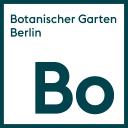

GFBio Data Center & Archive BGBM
Botanic Garden and Botanical Museum Berlin
Title
Digitisation / Cataloguing of non-textual objects: Development of a subject indexing system for collections of the north hemispherical flowering plant genus Campanula (DNA Sample Dataset)
Stable Identifier
For the dataset:
https://data.bgbm.org/dataset/gfbio/0019/
For version 1 of the dataset:
https://doi.org/10.34656/f3nw-4r59.1 Citation
Kilian, N.; Borsch, T.; Müller, K.; Güntsch, A.; Henning, T.; Plitzner, P. & Müller, A. (2018). Digitisation / Cataloguing of non-textual objects: Development of a subject indexing system for collections of the north hemispherical flowering plant genus Campanula (DNA Sample Dataset). [Dataset]. Data Publisher: Botanic Garden and Botanical Museum Berlin. https://data.bgbm.org/dataset/gfbio/0019/.
Data
| Version |
Date |
Comment |
Format |
Download |
| 1 | 2018-03-14 | (original data) | ABCD |  |
License
 Creative Commons Zero (CC0) 1.0
Creative Commons Zero (CC0) 1.0
Details
Using Campanula as an exemplar, the project (2012–2015) funded by the German Research Foundation (DFG ) within the Scientific Library Services and Information Systems (LIS) programme and done by the BGBM in cooperation with the University of Münster (Working Group Evolution und Biodiversity of Plants) has realised a system for integrated sample data processing for organismic samples and associated data (e.g. herbarium specimens, tissue samples, images, primary data, etc.) that are handled during the systematic research process. Existing EDIT Platform for Cybertaxonomy components were used to store (Data Repository), edit (Taxonomic Editor) and display (this Campanula Portal as an application of the CDM Portal) the data. The storage and presentation of data is conceptionally a dynamic process in which the taxonomic backbone is constantly adapted to the current scientific knowledge based on data availability. The main goals of the project was (a) an easy integration of samples used in the research process and their metadata into collections, thereby improving sustainability and verifiability of systematic research, and (b) the optimization of the data management and thereby increasing the efficiency of the workflow in systematic research. The project contributed to the acceleration and simplification of the systematic research workflow. This data set represents an ABCD-compliant export from DNA-sample data compiled by the project.
Related Publications
none
Additional Info
| Creator |
Dr. Norbert Kilian  |
| Contributors |
Thomas Borsch, Kai F. Müller, Anton Güntsch  , Tilo Henning , Tilo Henning  , Patrick Plitzner , Patrick Plitzner  , Andreas Müller , Andreas Müller  |
| Technical Contact |
Gabriele Droege |
| Last updated |
2018-03-14 |
| Record Basis |
Other Specimen |


 , Tilo Henning
, Tilo Henning  , Patrick Plitzner
, Patrick Plitzner  , Andreas Müller
, Andreas Müller 

